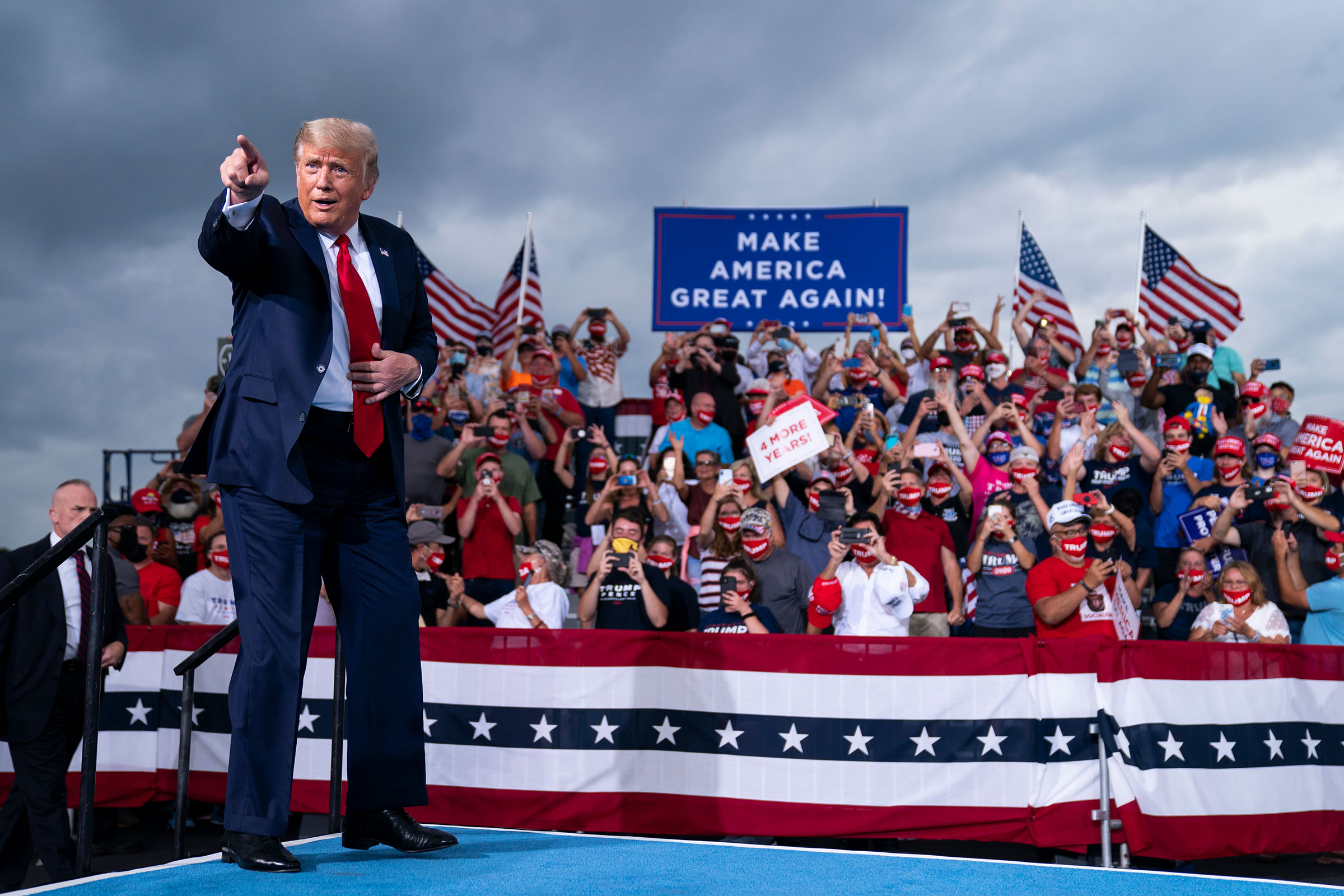
This article is part of the The DC Brief, TIME’s politics newsletter. Sign up here to get stories like this sent to your inbox every weekday.
The Democratic-led House seems to be laying the groundwork for yet another round of damning insider testimony against President Donald Trump and his administration’s indifferent handling of the threat that Russian interference poses for U.S. elections. The last time Washington went down this road, the House ended up impeaching Trump, and the Republican-controlled Senate served up an acquittal along near-party lines.
Does Washington really have the appetite to do this all over again?
The whistleblower complaint released yesterday by the House intelligence panel alleges political appointees directed the Department of Homeland of Security’s top intelligence analyst to push Russia’s efforts to meddle in U.S. polls aside and instead, to comport with the White House’s political messaging, focus on attempts from Iran and China.
The complaint also alleges that the whistleblower’s bosses told him to include information in intelligence reports about left-wing and Antifa extremists to balance analysis about the growing threat posed by white supremacists. The complaint, submitted to Homeland Security’s internal watchdog and forwarded to Congress as required by law, is sure to be fodder for political animals with less than two months before Election Day. If true, it would be the latest example of Trump and his team using the power of his office for personal political gain.
House Permanent Select Committee on Intelligence Chairman Adam Schiff says he has invited the whistleblower, Acting Under Secretary for Intelligence and Analysis Brian Murphy, to testify in private on Sept. 21 and would use a subpoena if necessary. That alone sets up a battle between Congress and the DHS, which could try to block Murphy’s testimony. Murphy is still with Homeland Security, now in a reduced role after reports became public that he was compiling dossiers on journalists who were covering the protests in Portland, Ore.
While much of Washington melted down this week over bombshell revelations in Bob Woodward’s new book, the whistleblower complaint actually poses a greater threat to Trump’s political fortunes. Public hearings that may follow the private session could make for a day or two of gripping testimony in the final weeks of a presidential campaign. Six states will have their early-voting windows open for ballots before Murphy’s proposed private meeting. The first debate between Trump and Democratic nominee Joe Biden is a week later.
If all of this sounds familiar, there’s a reason. Just 11 days before Election Day in 2016, then-FBI Director James Comey announced his agents had come into possession of potential new evidence in the never-ending saga about Hillary Clinton’s use of a personal address as Secretary of State. That Oct. 28 surprise, at least in the estimation of Bill Clinton, cost Mrs. Clinton the election. Voters were casting ballots with the cloud of an investigation over them and it created a sense of scandal — even if the new evidence proved unremarkable.
The whistleblower complaint could be used by Trump as another boogeyman, although one of dubious potency. In the run-up to the 2018 midterm elections that gave Democrats a majority in the House, Trump warned impeachment would be on the agenda if Republicans lost their gavels. Democrats were militant about not using the I-word if they could help it, betting that their research was accurate that voters were looking for someone to be a check on Trump but not a party that would stand-in for prosecutor. In the end, they pursued impeachment, and Trump could convince his base that they will try again and are already trying to steal an election should Biden lose.
Trump survived Democrats’ attempt to remove him from office, but he paid a price. In the period between House Speaker Nancy Pelosi announcing she was beginning the process and the day of his acquittal in the Senate, Trump’s base swung away from him more strongly than Democrats or independents swung toward the effort. As a share of the entrenched corners, twice as many Republicans abandoned Trump as Democrats who joined the moves to oust him. In an election when Trump’s sole play is to fire up his base, this threat to his core supporters could prove damning.
Make sense of what matters in Washington. Sign up for the daily D.C. Brief newsletter.
More Must-Reads from TIME
- Cybersecurity Experts Are Sounding the Alarm on DOGE
- Meet the 2025 Women of the Year
- The Harsh Truth About Disability Inclusion
- Why Do More Young Adults Have Cancer?
- Colman Domingo Leads With Radical Love
- How to Get Better at Doing Things Alone
- Michelle Zauner Stares Down the Darkness
Write to Philip Elliott at philip.elliott@time.com